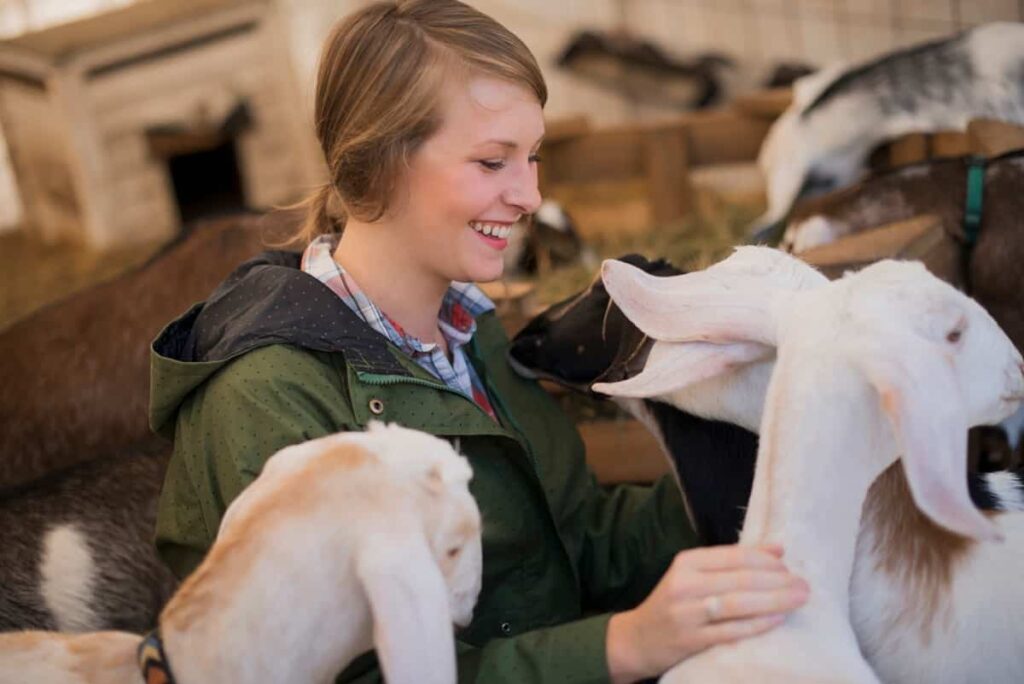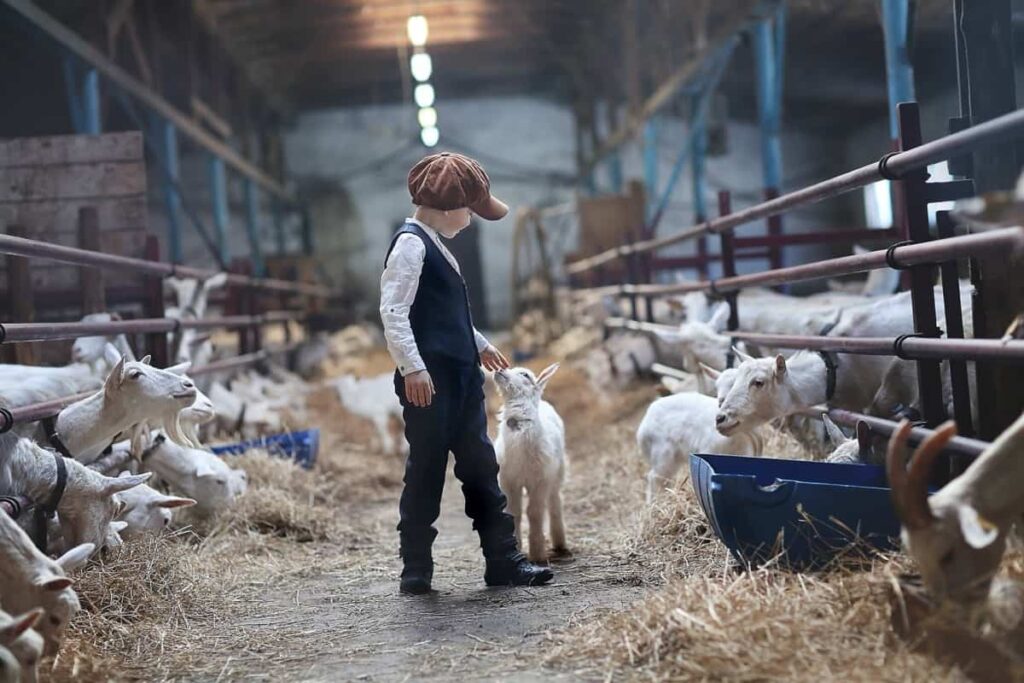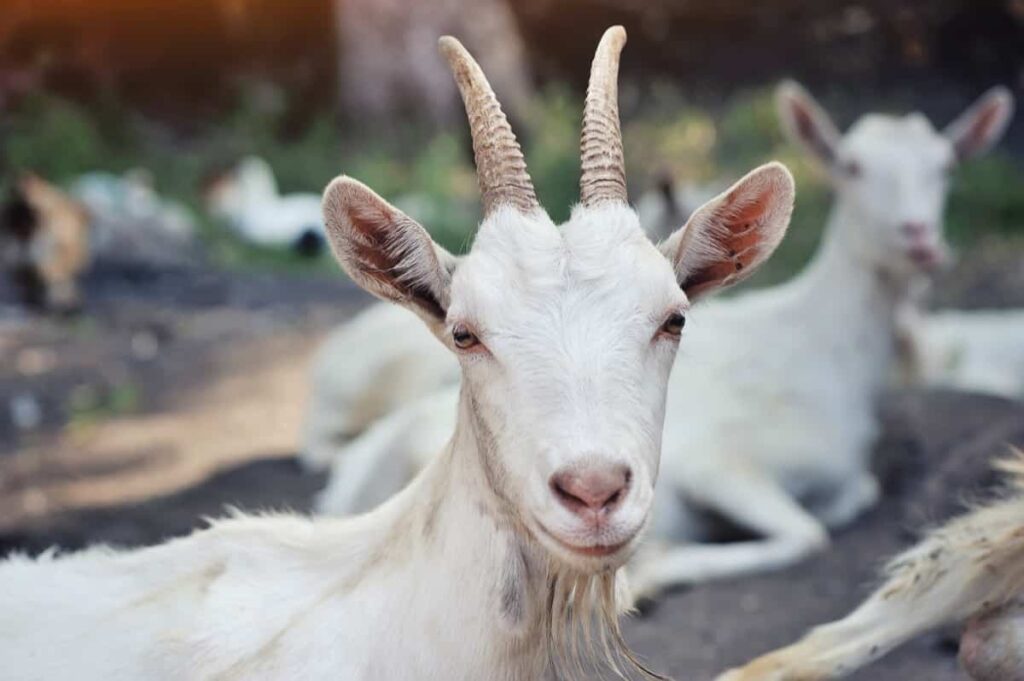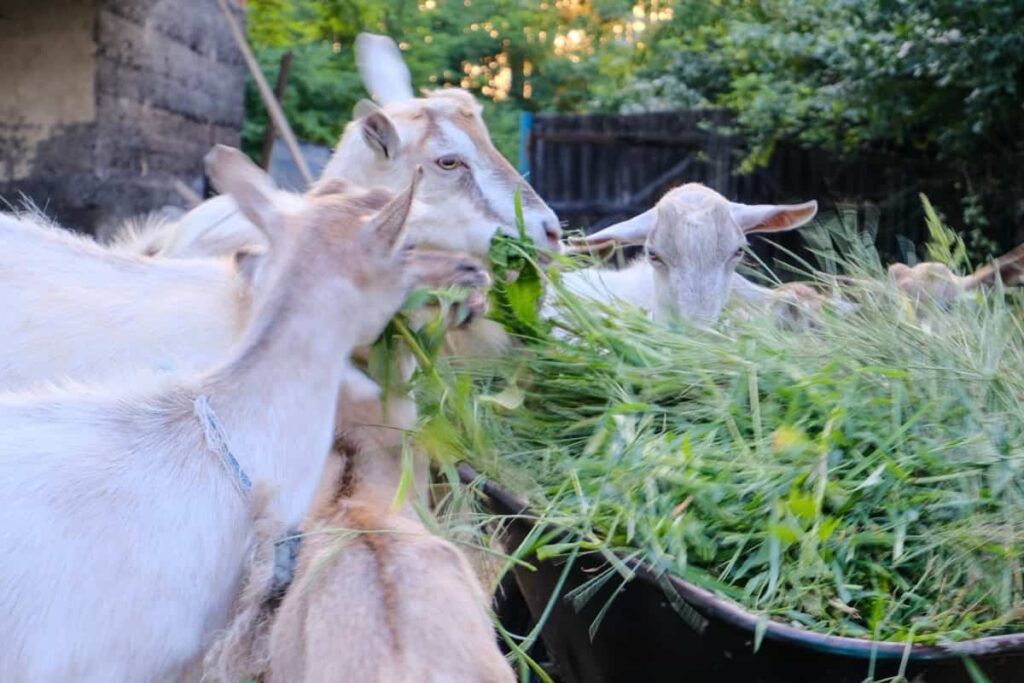The country’s rich agricultural heritage and abundant natural resources make it an ideal location to embark on a successful goat farming venture. Goats are known for their hardiness and adaptability to various climatic conditions, making them well-suited to thrive in the Turkish environment. Goat farming holds immense importance in Turkey, contributing significantly to the agricultural sector and the overall economy.

10 Steps to Start Goat Farming in Turkey
Acquiring Suitable Land and Infrastructure for Goat Farming in Turkey
The right location for a goat farm in Turkey can greatly impact the success of your farm. You must evaluate the land size required based on the number of goats you plan to raise. Goats need ample space to graze and roam freely. Additionally, access to clean water sources is crucial for drinking and irrigation. It’s also important to have proper housing facilities like barns or sheds where goats can find shelter during extreme weather conditions.
Best Breeds to Start Goat Farming in Turkey
Turkey has thirteen national and local native goat breeds named Hair, Angora, Norduz, Honamlı, Kilis, Damascus, Gürcü, Ispir, Kaçkar, Abaza, Malta, and Akkeçi.
- Hair: The Hair goat breed is known for its adaptability and disease resistance. They have a high fertility rate and excellent meat quality.
- Angora: Angora goats are famous for their luxurious mohair fiber, highly valued in the textile industry. These goats require special care and shearing at least twice a year.
- Norduz: Norduz goats are primarily raised for milk production and yield higher than other breeds. They also adapt well to various environmental conditions.
- Honamlı: Honamlı goats are prized for their excellent meat quality and rapid growth rate. Their ability to thrive in harsh climates makes them an ideal choice for farmers in Turkey.
- Kilis: Kilis goats are well known for their strong immune system, making them resistant to many regional diseases. They can survive on low-quality grazing land.
- Damascus: Damascus goats excel as dairy animals and producers of high-quality meat due to their fast growth rate and good milk yield.
- Gürcü: Gürcü goats originate from Eastern Anatolia and produce high-quality milk suitable for cheese production.
Establishing a Goat Breeding Program in Turkey
Look for healthy goats with desirable traits such as good milk production, strong immune systems, and adaptability to local conditions. Consider consulting with experienced breeders or veterinarians to make informed decisions. Next, determine the breeding method that suits your goals and resources. You can opt for natural mating, where bucks can freely mate with does, or choose artificial insemination for more controlled results. Proper record-keeping is crucial when running a successful goat breeding program.
In case you missed it: 10 Steps to Start Goat Farming in Nigeria: Business Plan, License, and Permits

Feeding and Nutrition Practices for Goats in Turkey
Proper nutrition for your goats is essential for their health, growth, and productivity. In Turkey, goats’ diet primarily consists of natural grazing on pastures. Commonly used feed options include hay, silage, grains, and concentrates. Hay should be of good quality and free from mold or dust. Silage can be made from various plants, such as corn or alfalfa, which are fermented and stored in airtight conditions.
Disease Management in Your Goat Farm in Turkey
The main step in disease management is regularly monitoring and observing your goats. This includes checking their overall health, behavior, and appetite daily. Any signs of goat illness should be addressed promptly to prevent the disease. Proper hygiene and sanitation are also essential for preventing diseases. Regularly clean and disinfect the barns, feeding areas, and equipment handling the goats. This helps eliminate any potential sources of infection.
Summary of Goat Farming in Turkey (Table Required)
| Steps | Description |
| Understanding the goat industry | Gather information on the local consumer preferences, making them well-suited to thrive in the Turkish environment. |
| Select suitable breeds | Hair, Angora, Norduz, Honamlı, Kilis, Damascus, Gürcü, Ispir, etc |
| Suitable land and infrastructure | The right environment ensures optimal growth and productivity. |
| Comprehensive breeding program | Maintaining healthy herds and maximizing production efficiency |
| Feeding practices | Providing a balanced diet helps promote excellent health. |
| Managing diseases effectively | Regular veterinary care can prevent outbreaks and protect your investment. |
| Market research | Identify any niches in the market. |
| Developing a comprehensive business plan | Understand consumer preferences and trends. |
| Necessary licenses and permits | Acquire any specific permits and obtain a business license from the local authorities. |
| Marketing strategies | Sell their goat products successfully in Turkey’s local markets or even export them internationally. |
Market Research and Feasibility Study for Goat Farming in Turkey
To begin your market research, gather information on the local consumer preferences for goat meat, milk, cheese, and other products. Identify any gaps or niches in the market that you can capitalize on. Feasibility studies involve assessing factors like land availability, infrastructure requirements, capital investment needed, labor costs, feed availability, and cost analysis.
In case you missed it: 10 Best Herbal Remedies for Goat Deworming

Developing a Comprehensive Business Plan for Goat Farming in Turkey
Identify your target market and find the demand for goat products in Turkey. Conduct a business plan through market research to understand consumer preferences and trends. Next, outline your production goals and strategies. Determine the number of goats you intend to raise, the breeds you will focus on, and the facilities required for their proper care. Financial planning is another crucial aspect of your business plan. Additionally, your business plan should include a detailed analysis of potential risks involved in goat farming.
Securing the Necessary Licenses and Permits for Goat Farming in Turkey
It is an essential step that ensures you are operating within the regulations set by the government. Firstly, you must obtain a business license from the local authorities. This license validates your operation as a legitimate business entity and allows you to engage in goat farming activities legally. Next, acquiring specific permits required for operating a goat farm is important. These may include environmental permits, agricultural permits, or zoning permits, depending on your location and the size of your farm.
Marketing and Selling Your Goat Products in Turkey
With the growing demand for high-quality goat meat, milk, and other by-products, developing marketing strategies to reach your target market is essential. The main step in marketing your goat products is understanding customers’ preferences and needs. Conducting research will help you identify potential buyers, their purchasing habits, and the competitive landscape. Next, create a strong brand identity for your goat farm. In addition to traditional marketing ways such as advertising in local newspapers or distributing flyers, consider exploring digital marketing techniques.
Goat Prices in Local Markets of Turkey
The local markets in Turkey offer different prices depending on various factors such as breed, age, weight, and health condition. In general, goat prices in local markets can vary significantly. Generally, the average price for a goat in Turkey can range from 300-1000 Turkish Lira.
How profitable is goat farming in Turkey?
The demand for goat products such as milk, meat, and cheese is steadily increasing domestically and internationally. Additionally, goats have relatively low feed requirements compared to other livestock animals, making them a cost-effective option for farmers. By carefully selecting high-yielding breeds and implementing effective management practices like proper nutrition and disease prevention measures, farmers can maximize their profits.
List of Goat Farms in Turkey
| List of Goat Farms | Location | Size |
| Şırnak Goat Farm | Şırnak province | Spread across 100 acres of lush green pastureland |
| Mardin Organic Farm | Mardin province | Spread over 50 acres of organic farmland |
| Van Milk Company | Van province | Operating across multiple locations with extensive facilities |
| Adana Livestock Farm | Adana province | Large-scale farm |
| Adrasan Goat Farm | Near Antalya | Operating across multiple locations with extensive facilities |
| Silifke Goat Farm | Mersin province | Large-scale farm |
The other important provinces for goat production in Turkey are Mersin, Antalya, Siirt, Bitlis, Diyarbakır, Kahramanmaraş, Muğla, Isparta, and Muğla.
In case you missed it: 10 Best Herbs for Diarrhea Treatment in Goats

Frequently Asked Questions about Goat Farming in Turkey
What Breed of Goats are in Turkey?
Turkey has thirteen national and local native goat breeds named Hair, Angora, Norduz, Honamlı, Kilis, Damascus, Gürcü, Ispir, Kaçkar, Abaza, Malta, and Akkeçi.
Are Goats Common in Turkey?
Goats are not just common in Turkey – they’re practically a way of life. With its rich agricultural heritage and diverse landscape, Turkey has long been home to a thriving goat farming industry. Regarding the goats in Turkey, over 80% are common hair goats, and around 20% are Angora goats.
Is Goat Farming Profitable?
The demand for goat products in Turkey is quite high. Goat meat and milk are widely consumed and sought after by consumers. This presents a lucrative market opportunity for goat farmers. Additionally, goats have a high reproductive rate, allowing farmers to expand their herd size and increase profits quickly.
How Much Land is Needed for a Goat Farm in Turkey?
The land required for a goat farm depends on the operation scale and herd size. As a general rule of thumb, you should allocate at least half an acre per 10-15 goats.
What Types of Goats are Suitable for Turkey?
The local breeds, such as Turkish Saanen and Kilis goats, have adapted well to the country’s climate and terrain. These breeds are known for their high milk production and resistance to diseases.
Conclusion
Goats are known for their versatility in adapting to different climates and terrains, making them well-suited for various regions in Turkey. This means farmers can establish goat farms in rural and urban areas, maximizing the growth potential. Moreover, the demand for goat products such as milk, meat, and fiber is steadily increasing domestically and internationally. This presents immense opportunities for entrepreneurs looking to tap into this lucrative market.
- Types of Grass Growing for Goat Farm
- How to Train Goats for Milking: A Beginners Guide
- Goat Milking Practices and Equipment: A Beginner’s Guide
- Goat Farming for Fiber: Producing Mohair and Cashmere
- Maximizing Goat Milk Production: Tips for Dairy Goat Farmers
- Goat Farming as a Family Business: Strategies for Success
- Profitable Kenya Goat Breeds for Commercial Dairy and Meat Business
- Unlock the Secrets of Oberhasli Goat: Discover Raising and Management Practices
- Ultimate Guide to Myotonic Goats: Explore Profile to Raising